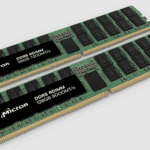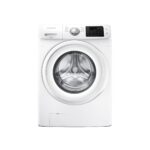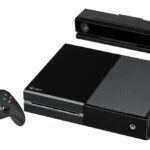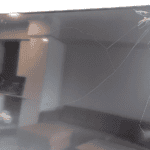Dell docking stations are useful tools for connecting multiple devices to your laptop. Sometimes they need a reset to fix issues or improve performance. To reset a Dell docking station, unplug it from power and your computer, wait 30 seconds, then reconnect everything.
This simple process often solves common problems like flickering displays or unresponsive ports. It’s a quick fix you can try before calling tech support or replacing your dock.
Let’s look at the steps to reset different Dell docking station models:
| Model | Reset Steps |
|---|---|
| WD19 | Unplug, hold power button 30 seconds, reconnect |
| WD15 | Unplug, wait 30 seconds, reconnect |
| D6000 | Unplug, remove USB cable, wait 30 seconds, reconnect |
Preparation Before Resetting Your Dell Docking Station
Before resetting your Dell docking station, it’s essential to understand its features and ensure compatibility with your device. This preparation will help you avoid potential issues and streamline the reset process.
Understanding the Dell Docking Station
Dell docking stations connect your laptop to multiple peripherals through a single cable. They come in various models, including the popular WD19 series. These docks support USB-C and Thunderbolt connections, allowing for fast data transfer and power delivery.
Key features of Dell docking stations:
- Single cable connection
- Multiple display support
- High-speed data transfer
- Power delivery to your laptop
Understanding your dock’s capabilities helps you make the most of its features and troubleshoot effectively when needed.
Checking Compatibility and Specifications
Before resetting, verify that your Dell docking station is compatible with your laptop. Check the model number of your dock and laptop to ensure they work together. Most Dell laptops support the WD19 series, but it’s crucial to confirm.
Table: Common Dell Docking Station Specifications
| Model | Connection Type | Max Displays | Power Delivery |
|---|---|---|---|
| WD19 | USB-C | 3 | Up to 130W |
| WD19TB | Thunderbolt 3 | 4 | Up to 130W |
Visit the Dell support website to download the latest drivers and firmware for your docking station. Up-to-date software can often resolve issues without a full reset.
Reset Process for Dell Docking Station
Resetting a Dell docking station can solve many common issues. This process involves locating the reset button and following specific steps to restore default settings.
Locating the Reset Button
The reset button on Dell docking stations is usually small and recessed. Look for a tiny hole labeled “Reset” on the device’s body. It’s often found on the side or back panel. Use a paperclip or similar tool to press this button. Some models may have the reset button under a removable cover.
Dock reset procedures vary slightly between models. Check your specific dock’s manual for exact button location.
Step-by-Step Reset Instructions
- Unplug all devices from the docking station.
- Disconnect the power cable.
- Press and hold the reset button for 10 seconds.
- Release the button and wait 5 seconds.
- Reconnect the power cable.
- Wait for the dock’s LED to blink 3 times.
- Plug the dock back into your computer.
This process restores factory settings and often fixes connection problems. After resetting, check for firmware updates. These can improve performance and stability.
| Step | Action | Duration |
|---|---|---|
| 1-2 | Disconnect | – |
| 3 | Hold reset | 10 seconds |
| 4 | Wait | 5 seconds |
| 5-7 | Reconnect | – |
If issues persist after resetting, contact Dell support for further assistance.
Troubleshooting Post-Reset Issues
After resetting your Dell docking station, you may encounter a few issues. These often relate to connectivity, performance, and outdated software. Addressing these problems promptly will ensure your docking station functions optimally.
Resolving Connectivity Concerns
Check all cable connections first. Ensure the USB-C or Thunderbolt cable is securely plugged into both the dock and your computer. Verify that external devices are properly connected to the dock’s ports.
If displays aren’t working, try different cables or ports. For audio issues, replug the audio cable into the docking station’s external speaker output.
Test the ethernet connection by plugging directly into your computer. If it works there but not through the dock, the dock’s ethernet port may be faulty.
For USB device problems, try connecting them directly to your computer. If they work there, the dock’s USB ports might need attention.
Ensuring Optimal Performance
Reboot your computer after resetting the dock. This can resolve many software-related issues and ensure proper detection of the docking station.
Check your computer’s power settings. Ensure it’s not in a power-saving mode that might limit the dock’s functionality.
| Issue | Quick Fix |
|---|---|
| Slow USB speeds | Use USB 3.0 ports for faster devices |
| Display lag | Lower resolution or refresh rate |
| Intermittent connectivity | Try a different USB-C port on your computer |
If problems persist, consider performing a dock reset procedure. Unplug all cables, hold the power button for 30 seconds, then reconnect everything.
Update Drivers and Firmware
Outdated software can cause compatibility issues. Visit Dell’s support website to download the latest drivers for your docking station model.
Update your computer’s BIOS, chipset, and graphics drivers. These can affect how your system interacts with the docking station.
Use Dell Update or Dell Command Update tools to simplify the process. They can automatically detect and install the necessary updates for your system and connected devices.
If issues continue after updating, consider contacting Dell support. They can provide model-specific troubleshooting steps or arrange for a replacement if needed.
Technical Support and Resources
Dell offers various support options and documentation to help troubleshoot docking station issues. These resources can guide you through reset procedures and resolve common problems.
Contacting Dell Support
If you encounter persistent issues with your Dell docking station, reach out to Dell technical support. They can provide personalized assistance and advanced troubleshooting.
To contact Dell Support:
- Visit the Dell Support website
- Enter your product’s Service Tag or Express Service Code
- Choose your preferred contact method (phone, chat, or email)
Dell’s support team can help with:
- Firmware updates
- Driver installations
- Hardware diagnostics
- Warranty claims
Keep your docking station model number and computer details handy when contacting support for quicker assistance.
Utilizing Online Documentation
Dell provides comprehensive online resources for docking station troubleshooting. These documents cover reset procedures, driver updates, and common issues.
Key online resources include:
- Product manuals
- Knowledgebase articles
- Video tutorials
- Driver download pages
Dell’s support site offers step-by-step guides for resetting docking stations like the WD19. You can find instructions for updating firmware and installing crucial drivers such as:
- Intel Thunderbolt Controller Driver
- Realtek USB Audio Driver
- USB GBE Ethernet Controller Driver
| Resource Type | Contents |
|---|---|
| Product Manual | Setup, specs, troubleshooting |
| Knowledgebase | Common issues, solutions |
| Video Tutorials | Visual guides for procedures |
| Driver Pages | Latest software updates |
Check these resources before contacting support to potentially solve issues quickly on your own.
Frequently Asked Questions
Resetting and troubleshooting Dell docking stations can solve many common issues. Here are key steps and solutions for various problems you might encounter with your Dell dock.
What steps are required to reset a WD19 Dell docking station?
To reset a WD19 Dell docking station:
- Unplug the USB-C or Thunderbolt cable from your computer.
- Disconnect the AC power from the dock.
- Hold the power button for 30 seconds to drain remaining power.
- Reconnect the AC power to the dock.
- Wait for the power button LED to blink three times.
- Plug the USB-C or Thunderbolt cable back into your computer.
How can I troubleshoot a Dell docking station that is not powering on?
If your Dell docking station won’t power on:
- Check all power connections are secure.
- Try a different power outlet.
- Inspect the power cable for damage.
- Perform a dock reset as described above.
- If issues persist, contact Dell support.
What should I do if my Dell docking station is not recognizing the connected monitor?
When your Dell dock doesn’t recognize a monitor:
- Ensure all cables are firmly connected.
- Try a different video cable.
- Update your docking station drivers.
- Check if the monitor works when connected directly to your computer.
- Test with a different monitor to isolate the issue.
Can the power light indicator on a Dell docking station signify a need for reset?
Yes, the power light can indicate reset needs:
- No light: The dock may need a reset or have power issues.
- Blinking light: Often indicates a firmware update or reset in progress.
- Solid light that doesn’t change: May suggest the dock is stuck and needs a reset.
Always refer to your specific model’s user guide for accurate light indicator meanings.
Is there a way to perform a factory reset on a Dell docking station model WD15?
To factory reset a Dell WD15 docking station:
- Unplug all cables including power.
- Press and hold the reset button for about 10 seconds.
- Reconnect the power cable.
- Wait for the power light to stabilize.
- Reconnect your devices and test functionality.
What are the common troubleshooting methods when a Dell docking station ceases to work?
Common troubleshooting steps for a non-working Dell dock:
- Perform a full reset of the docking station.
- Update all drivers and firmware.
- Try different USB ports on your computer.
- Test with another computer to isolate the issue.
- Check for any visible damage to cables or ports.
| Issue | First Step | Second Step | Third Step |
|---|---|---|---|
| No Power | Check connections | Try different outlet | Reset dock |
| No Display | Verify cable connections | Update drivers | Test different monitor |
| USB Issues | Unplug/replug devices | Update dock firmware | Try different USB ports |
| Audio Problems | Check audio settings | Update audio drivers | Test with different speakers |






